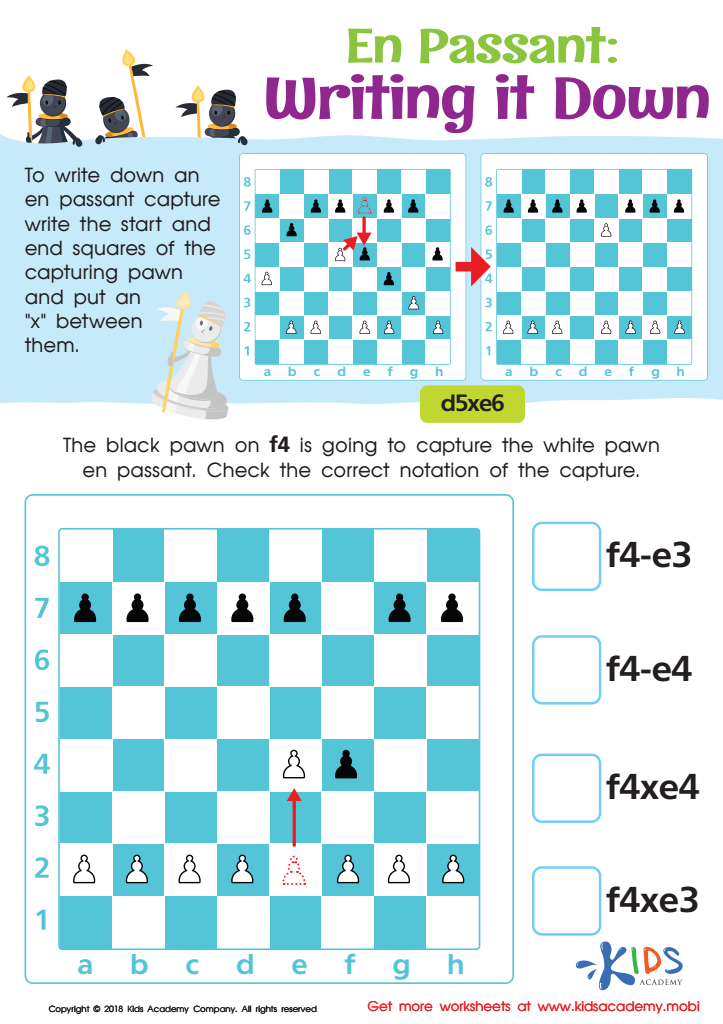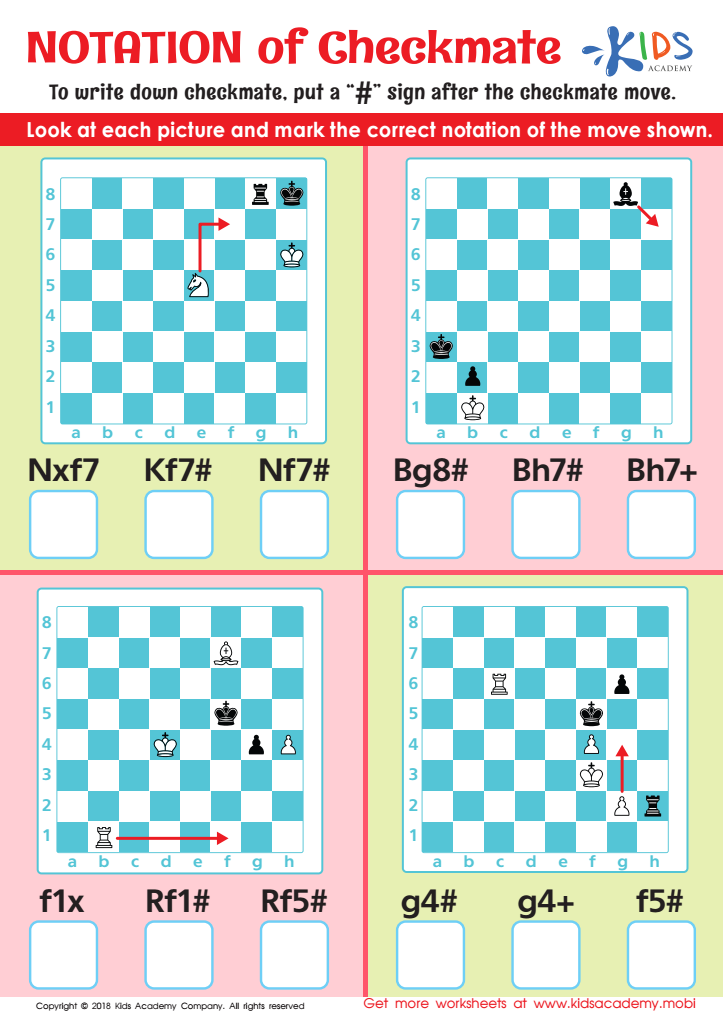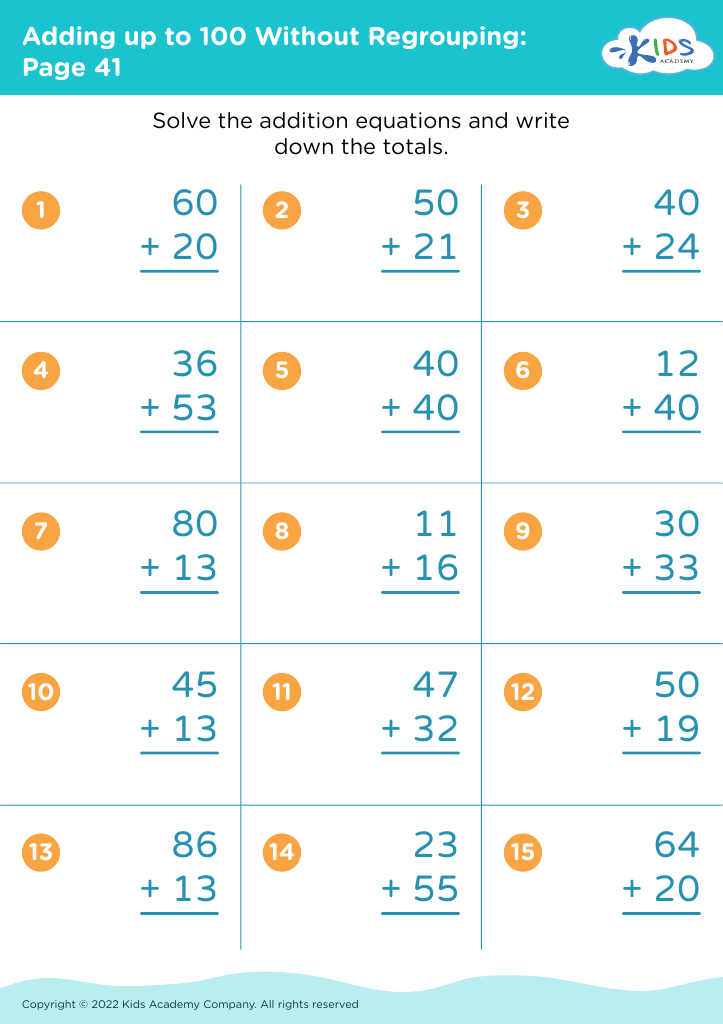Problem solving enhancement Worksheets for Ages 7-9
3 filtered results
-
From - To
Enhance your child’s critical thinking skills with our Problem Solving Enhancement Worksheets for ages 7-9. These engaging, age-appropriate printables are designed to develop logical reasoning, analytical thinking, and creativity. Offering a variety of challenges, including puzzles, riddles, and real-world scenarios, our worksheets encourage young learners to think outside the box and tackle problems confidently. Ideal for both classroom and home use, these resources not only support school curricula but also make learning fun and interactive. Prepare your child for academic success and everyday challenges by fostering essential problem-solving skills with our expertly crafted worksheets.


En Passant: Writing it Down Worksheet


Notation of Checkmate Worksheet
Parents and teachers should prioritize problem-solving enhancement for children aged 7-9 because it fosters critical cognitive and social development crucial at this stage. This age group is ripe for developing foundational skills that will shape their future learning and everyday interactions. Enhancing problem-solving abilities encourages children to think logically, creatively, and independently when faced with challenges, both academic and personal.
By honing problem-solving skills, children learn to break down complex tasks into manageable steps, improving their ability to tackle difficult subjects like math and science. This kind of strategic thinking is essential for academic success and builds confidence, encouraging a positive attitude towards learning new and challenging material. Equally important, developing these skills can significantly influence social interactions. Children become better communicators, as they learn to negotiate, collaborate, and find mutually acceptable solutions with peers.
Moreover, problem-solving promotes resilience and perseverance. Children develop a growth mindset, understanding that effort and strategic thinking can overcome obstacles. This mindset not only aids in academic contexts but applies to various life scenarios, from playground disputes to household chores. Therefore, investing in problem-solving enhancement not only prepares children for the rigors of formal education but also equips them with essential life skills that will benefit their overall development and future success.

 Assign to the classroom
Assign to the classroom













